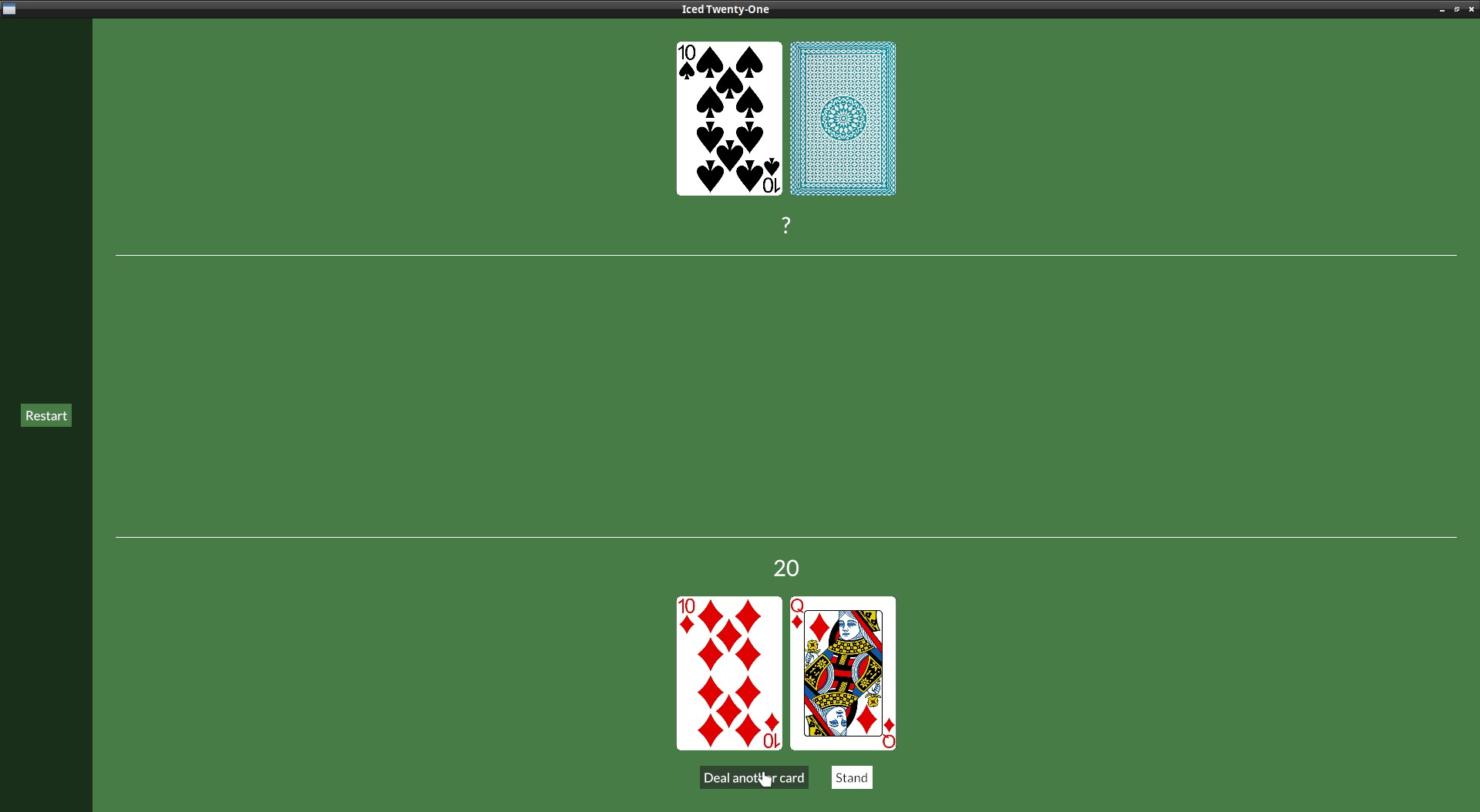Creating a different button style
Remember when we played with the button's StyleSheet at Chapter 5? We can now do the same but on our own theme.
On our theme.rs, let's add a ButtonStyle enum with 2 variants and set this as our Style type on the stylesheet:
#[derive(Default)]
pub enum ButtonStyle {
/// No style.
#[default]
Table,
Menu,
}
impl button::StyleSheet for TwentyOneTheme {
type Style = ButtonStyle;
Now we just need to check which style our button is and set the colors accordingly, so our stylesheet will be like this now:
impl button::StyleSheet for TwentyOneTheme {
type Style = ButtonStyle;
fn active(&self, style: &Self::Style) -> button::Appearance {
match style {
ButtonStyle::Table => {
button::Appearance {
background: Some(iced::Background::Color(color!(0xFFFFFF))),
text_color: Color::BLACK,
..Default::default()
}
} ButtonStyle::Menu => {
button::Appearance {
background: Some(iced::Background::Color(color!(0x477c47))),
text_color: Color::WHITE,
..Default::default()
}
}
}
}
fn hovered(&self, style: &Self::Style) -> button::Appearance {
match style {
ButtonStyle::Table => {
button::Appearance {
background: Some(iced::Background::Color(color!(0x324731))),
text_color: Color::WHITE,
..Default::default()
}
} ButtonStyle::Menu => {
button::Appearance {
background: Some(iced::Background::Color(color!(0xFFFFFF))),
text_color: Color::BLACK,
..Default::default()
}
}
}
}
fn pressed(&self, _style: &Self::Style) -> button::Appearance {
self.hovered(_style)
}
}
It would be nice for the sidebar to look like it's own thing, so let's do the same with the container and create two different styles:
#[derive(Default)]
pub enum ContainerStyle {
/// No style.
#[default]
Table,
Menu,
}
impl container::StyleSheet for TwentyOneTheme {
type Style = ContainerStyle;
fn appearance(&self, style: &Self::Style) -> container::Appearance {
match style {
ContainerStyle::Table => {
container::Appearance {
text_color: Some(Color::WHITE),
background: Some(iced::Background::Color(color!(0x477c47))),
..Default::default()
}
} ContainerStyle::Menu => {
container::Appearance {
text_color: Some(Color::WHITE),
background: Some(iced::Background::Color(color!(0x192f19))),
..Default::default()
}
}
}
}
}
Now that we're setting the color at the container, we can remove it from the application::StyleSheet by setting it to Color::TRANSPARENT:
impl application::StyleSheet for TwentyOneTheme {
type Style = ();
fn appearance(&self, _style: &Self::Style) -> application::Appearance {
application::Appearance {
background_color: Color::TRANSPARENT,
The "Table" styles are set as the default ones, so in our app code we just need to set the menu ones, let's go back to our col_menu and call .style() to specify which style we want:
let menu_col = col![
container(
button(text("Restart")).on_press(Message::Restart).style(theme::ButtonStyle::Menu),
).height(Length::Fill).center_y().width(Length::Fill).center_x().style(theme::ContainerStyle::Menu)
].align_items(iced::Alignment::Center).spacing(10).width(Length::Fixed(120.));
